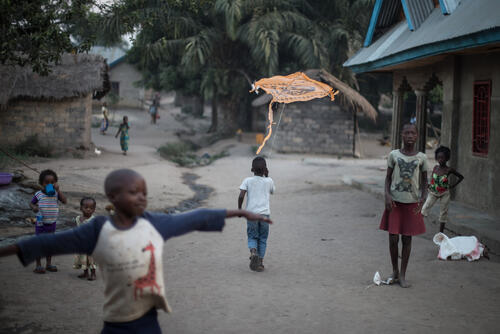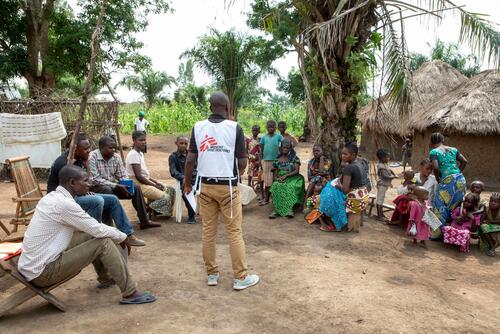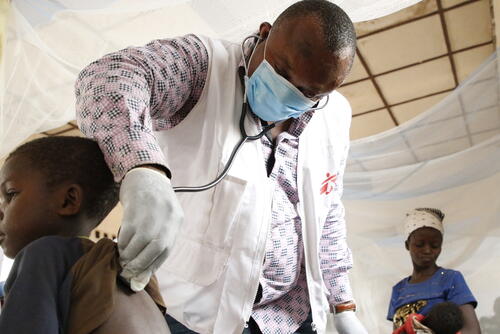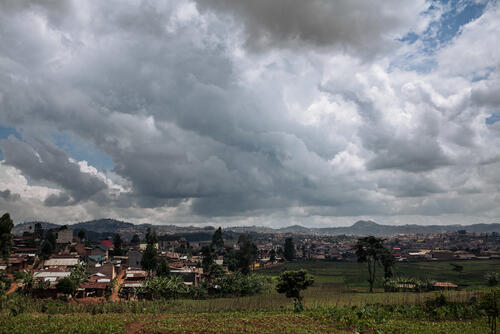Following yet another violent incident in Salamabila, in the Democratic Republic of Congo's eastern Maniema province, Médecins Sans Frontières (MSF) is calling on other humanitarian entities in the country to take action and strengthen protection services for people in this area.
On the evening of 11 November, shortly after shots were heard in the town of Salamabila, two people with serious gunshot injuries arrived in health facilities that we support. A third person, with stab wounds, sought help the following morning. Our teams also treated several survivors of sexual violence.
Violence against the civilian population in Salamabila has almost become normalised, and it's happening even outside of active conflict. It's having a serious impact on the physical and mental health of the people living here.Carlos Francisco, MSF head of mission
People in the Salamabila area has been subjected to numerous incidents of violence in recent years. Close to Mount Namoya, a natural gold deposit, fights between armed groups over access to natural resources are frequently accompanied by attacks on the civilian population. Violence, kidnappings, looting and the destruction of property are commonplace.
“Violence against the civilian population in Salamabila has almost become normalised, and it's happening even outside of active conflict,” says MSF head of mission Carlos Francisco. “It's having a serious impact on the physical and mental health of the people living here.”
Attacks on the population must stop. We call on all armed groups and anyone else carrying an arm in the area to respect international humanitarian law, to do no harm and to protect civilians at all costs.Carlos Francisco, MSF head of mission
MSF is particularly alarmed by the high number of incidents of sexual violence that our teams are seeing. Since the beginning of this year, we have treated close to 1,000 survivors. Eighty-five per cent of the perpetrators were armed men.
Our teams been active in the area since 2018, providing general and specialised healthcare in several hospitals and health centres. One of our priorities is the medical and psychosocial support of victims of sexual violence.
“Attacks on the population must stop. We call on all armed groups and anyone carrying an arm in the area to respect international humanitarian law, to do no harm and to protect civilians at all costs,” says Francisco.






